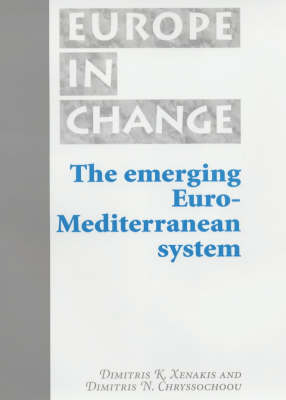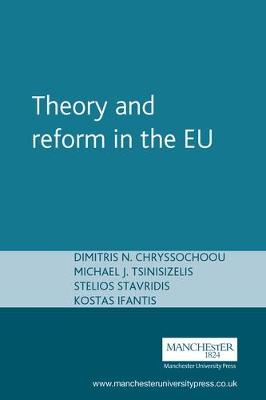Europe in Change
3 total works
The Emerging Euro-Mediterranean System
by Dimitris Xenakis and Dimitris N Chryssochoou
Published 26 April 2001
This volume provides insights into the principal challenges facing the Euro-Mediterranean partnership since the signing of the Barcelona Declaration in November 1995. It assesses past European policies towards the region, addresses questions of Mediterranean complexity, and accounts for the politics of order-building and regime-formation in the emerging Euro-Mediterranean system. The title is divided into three parts, each reflecting a particular concern with the structure and dynamics of order-building in the emerging Euro-Mediterranean space. Part one accounts for the realities of the post-1998 international order and assesses the nature of Mediterranean complexity. Part two focuses on European policies towards the Mediterranean before and after the launch of the Barcelona Process, and the extent to which the latter represents a break with the past. Part three justifies the centrality of theory towards the development of a more profound understanding of complex social and political phenomena and conceptualises the emerging Euro-Mediterranean system through the intersection of regime theory and international governance.
Theory and Reform in the Eu
by Dimitris N Chryssochoou, Michael J. Tsinisizelis, Stelios Stavridis, and Kostas Ifantis
Published 22 April 1999
This electronic version has been made available under a Creative Commons (BY-NC-ND) open access license. This substantially updated and revised edition offers a comprehensive overview of the challenges confronting the political system as well as the international politics of the European Union. It draws from a spectrum of regional integration theories to determine what the Union actually is and how it is developing, examining the constitutional politics of the European Union, from the Single European Act to the Treaty of Nice and beyond. The ongoing debate on the future of Europe links together the questions of democracy and legitimacy, competences and rights, and the prospects for European polity-building. The aim is to contribute to a better understanding of the emerging European polity and the questions that further treaty reform generates for the future of the regional system. The authors also assess the evolving European security architecture; the limits and possibilities of a genuine European foreign, security and defence policy; and the role of the EU in the post-Cold War international system. Common themes involve debates about stability and instability, continuity and change, multipolarity and leadership, co-operation and discord, power capabilities and patterns of behaviour. The book traces the defining features of the 'new order' in Europe and incorporates an analysis of the post-September 11th context.
Theory and Reform in the European Union
by MR Dimitris N Chryssochoou, Michael J. Tsinisizelis, Stelios Stavridis, and Kostas Ifantis
Published 1 January 2003


